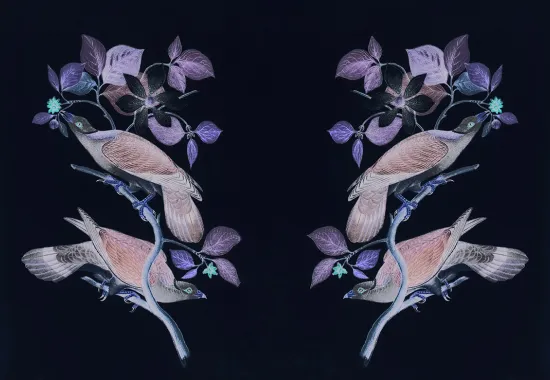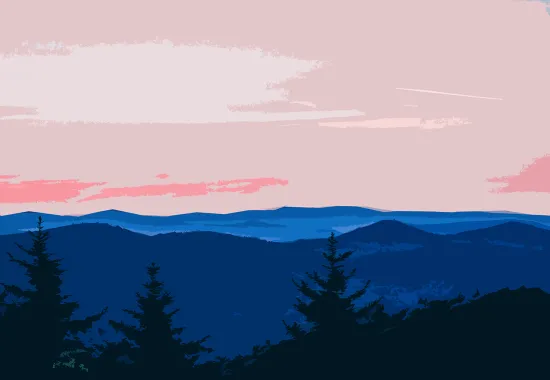Honoring Poetry and Identity: An Interview with Charlotte Pence
Charlotte Pence’s full-length poetry collection, Spike, will be released by Black Lawrence Press in 2014. She is also the author of two award-winning poetry chapbooks, The Branches, the Axe, the Missing and Weaves a Clear Night. Pence edited The Poetics of American Song Lyrics (University Press of Mississippi, 2012), which explores the similarities and differences between poetry and songs. New poetry is forthcoming from Alaska Quarterly Review, Denver Quarterly, North American Review, Prairie Schooner, and The Southern Poetry Anthology. She is a professor at Eastern Illinois University.
.
Like so many relationships are formed nowadays, Charlotte Pence and I became “friends” through Facebook. We quickly connected as poets, women of similar age from similar backgrounds, and, since the birth of Charlotte’s first child, now also as mothers working to achieve the elusive balance between our work as poets and our families, or perhaps to debunk the myth that balance exists. Charlotte graciously agreed to answer some questions about these various roles, as well as her poems, via email.
CPC: Will you comment generally about how you achieve balance between your work and home?
CP: Honestly, not balancing everything and accepting that as one way to negotiate the addition of being a parent has been my strategy. What I mean by that is “balance” suggests that I have everything doled out in tidy portions. But I feel like that’s not quite possible with an infant. The first couple of months she received the bulk of my attention. Granted, I was still teaching three weeks after giving birth, so I was back in the classroom. Things just weren’t necessarily 50/50. But later, my husband and I did a book tour, and that took the bulk of our time. We took her along and she adapted to the road schedule and the new bed every night. I think these shifting priorities will continue based on what needs more attention at that moment.
The other strategy is to honor writing by hiring help for my writing time. Poetry is what I do. It can seem like a weird job to some, but it is my job, and like with any job, I need uninterrupted time to focus on it.
CPC: Do you have a particular writing process? At what point can you say you have “honored” your work for the day?
CP: Being a poet and creative writing professor is one of the best gigs going. But the drawback is that there is no whistle at the end of the day that tells you it is time to put on your jacket and walk out the door. What I do is set a timer for one hour and fifteen minute intervals. No peeing, tea making, or web surfing—in other words—no nothing is allowed during that time other than poetry. I do a few of those sessions on my best days.
What makes me feel like I have truly honored my work is when that hour and fifteen minute session occurs without me feeling divided. And this sense of division is what parents have to really fight against—or what I have seen as my main challenge with the birth of my daughter. It was hard enough to tune out the outside world before the baby, but now I have a dependent creature that I also have to tune out. I know this isn’t sexy to talk about, but I feel like we need to have a bit more of these discussions for professional parents to learn how to cope. My husband and I just chose between a nanny and daycare. Same price, same hours, same quality, etc., but I knew I wouldn’t be able to hole myself up as well if she were with a nanny. So, we chose the less boujie situation of the daycare. Choices like that, from the tedious (stopwatch) to the banal (daycare), are some of the ways that I honor my writing.
CPC: As you know, my love affair with your work began with your chapbook, Weaves A Clear Night, which is "set in modern-day Appalachia." First, to what degree do you consider yourself an Appalachian poet and how do you think being an Appalachian writer means something different to our generation of writers than to the generations before us?
CP: I was just reading William Wright (who is also a southern poet), and it struck me how much of his work concerns memory. What do we remember? More importantly, what don't we remember, but intuit? For Appalachian writers, I think the land, and I mean this in the literal sense of the dirt we tilled and the creeks we played in, is a large part of who we are and where we belong. Granted, a big difference with this generation of Appalachian writers is that most of us no longer work the earth our whole lives like our families did. Still, as a kid, I was out there selling vegetables at the Farmers Market on Saturday, and visiting relatives meant playing in the barn and shrieking as the cows came too close.
Like Wright's book, my past two chapbooks very much deal with memory and the slipperiness of it all, and in both books, memory is attached to something physical, be it fire, rivers, wood. I can't quite get away from the physical landscape even when I am focusing on my interior landscape.
CPC: I agree that as Appalachians we are bound, maybe inexplicably so, to the land.
In The Branches, the Axe, the Missing’s second poem you seem to connect this woman’s independence, maybe better her empowerment, with the physical when she
Grabs the branch by the base.
Her hands slide down wet-slime of turkey-tail mushroom in
bloom.
She pauses. Decides not to wipe off her hands.
Begins again.
It takes five tugs, a deep drag. The moon seeps through to a shine.
How long has it been since she has done something as
fundamental as this?
Cleared a path, been wet, been cold.
Scent of wet dog shit limps over from the neighbor’s yard. Their
Windows are ice-black.
Something about this feeling is honest. Like nakedness.
Throughout this section, you give the sense that she revels in this physical act. You portray woman’s primal essence; present her as an individual, not just in terms of her relationship to the various men in her life. As a woman is it important to you to thoughtfully represent women in your work?
Further, do you consider yourself a “woman poet?” In the past year, I have spent a lot of time reading Alicia Ostriker's books, essays, etc. She defines a very specific subgenre of poetry—women's poetry. She even goes so far to say that Women Poets should be its own category, similar to American Poets. I have conflicting opinions, but I wonder how you feel about the label.
CP: Both of these questions hit upon similar topics, so I’ll address them together. The idea of being categorized as a “woman poet” or the idea that my work needs to represent “women” in some way is a bit dangerous. I understand and sympathize with the ideas behind such categorizations, but at the same time, I feel like my first duty as a poet is to the poem—not to an ideal. The idea of writing what one thinks one “should” write can produce some pretty stale work in poetry and fiction. (Other genres, however, do serve as better vehicles for writing about ideals.) Now, if someone wants to come along behind me and say, “Aha! That line smells like an Appalachian female poet looking at a snail with a sense of pastoral domesticity…” then fine. I just don’t want to sit down at my desk with a sense that my duty at that moment is to represent a group of people. One, I can’t do it. And two, I don’t think I should.
CPC: Clearly you don’t limit yourself or your writing based on regional, gender, or other designations. Are there times when you may have been confined by others, or by the business, so to speak, because of these designations, or has it been your experience that the quality of your poems speak for themselves (as they should)?
CP: One of the aspects about poetry that I love is that there isn't much money in it—and therefore you can't sell out even if you want to. I lived in Nashville for eight years and saw first-hand too many songwriters starting to hate writing once they signed a publishing deal. They truly have to contend with being confined by an accountant looking over what they write. We don't have those commercial limits as poets or those other limits you just mentioned. For us, we can choose our own boundaries.
CPC: In both Weaves a Clear Night and The Branches, the Axe, the Missing you ground the story in history—the most ancient history. In Weaves... you make new, mythic Penelope's story and in The Branches… you reach back to the earliest humans to make meaning of very contemporary issues. Does it make you feel less vulnerable as a writer, as an individual, to deal with sensitive issues like adultery, divorce, even pedophilia in this way?
CP: You are right: I do reach back to the earliest of our kind in The Branches, the Axe, the Missing. I go back 5-7 million years ago to when the increase in brain size created australopithecines from forest apes. (“Lucy” is the famous member of that genus.) And yes, you are also right to see that, in both works, I layer raw experiences with another subject. Eliot had a term for it: the mythical method. Well, he was mainly talking about bringing in myth, like I do in Weaves a Clear Night. Still, his ideas resonate for me. Eliot defined the mythical method as “manipulating a continuous parallel between contemporaneity and antiquity…. It is simply a way of controlling, or ordering, of giving shape and a significance to the immense panorama of futility and anarchy which is contemporary history…”. In other words, layering one subject with another helps to provide both stories with a greater significance.
Furthermore, amidst the current fascination with recording private moments and distributing them to the public via Facebook, Twitter, wikis, and blogs, poetry that reveals personal details and conflates the identity between speaker and author can inadvertently be viewed as yet another commodification of the self. So, I do try to reach beyond simply telling my story. The layering of subjects suggests that the personal and political, the domestic and the international, and the private and public are not dichotomous subjects, but interconnected ones. This sense that all spheres are connected encouraged me to find the connection between my family’s personal story and the human race’s evolutionary story, and by doing so, does it help ease me into tricky territory? Absolutely, but more in the sense that I can have one foot on stable ground—that of history—as I put the other foot on shaky ground.
CPC: Since we are on the subject of potential “shaky ground,” poem five’s ending, "Mercurial an SAT word. / She does not know / how to spell / schizophrenic. / Pedophilia she learned / in the third grade," is incredible. WOW! Totally unexpected, yet it makes the poem. I have a feeling it may have been as much a surprise for you, the poet, as it is for the reader (Frost would approve). Can you talk about your approach to individual poems? Do they haunt you, as Louise Gluck says, until they are written, or happen organically as you sit down to write?
CP: It’s interesting that you quoted those exact lines because they were indeed a surprise to me. My husband, Adam Prince, is a fiction writer and is also my best critic. He read an earlier version of that section without the end: “Pedophilia she learned / in the third grade.” Actually, it was Adam who suggested that ending. I resisted it, saying it was too “in your face,” but he reminded me that poetry could sometimes use a bit of that blunt clarity. I tend to write “prettily,” as a workshop teacher once told me, and getting away from that is good for my work. I can describe flowers, wind, and logs all day long—but who cares? What is at stake? Sometimes, a blunt ending like that one is needed.
But to answer your question: I’m more in that category of haunted. Or hunted might be a better word for me. I feel rather stalked by my poems—and that we are in a fight over who is going to win. Sometimes, I just don’t want to reveal or do what the poem asks of me. But if the poem has its way, it happens, and is better for it.
Catherine Pritchard Childress lives in the shadow of Roan Mountain, Tennessee. She studies literature and creative writing as a Master's Candidate at East Tennessee State University and edited the 2013 edition of Mockingbird. Catherine's poems have appeared or are forthcoming in North American Review, The Connecticut Review, Cape Rock, Town Creek Poetry, and Southern Women's Review among other journals and have been anthologized in Southern Appalachian Poetry: Tennessee Poets.
Recommended
The Shirt
After Hearing David Rothenberg Sang with Birds
Frothing Pink Poodle Droppings





